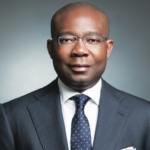
“Teach me to read,” Fiona, one of the TEDx speakers in Kano last weekend, spoke of her encounter with an almajiri boy. “I didn’t speak his language and he couldn’t speak English, so we communicated in our own way,” she said. The boy had a problem and he recognized Fiona as the solution. Fiona’s presentation was a story of how she held the almajirai and orphans by the hands and journeyed with them from zero to literacy in 100 hours. Some of the children had lost their parents to Boko Haram crisis.
The organizers later told me that her talk extracted tears from the audience. I didn’t see the tears because I was engrossed in the talk – completely mesmerized. Here’s someone who’s doing something meaningful and she knows it. “Imagine from how far (New Zealand) she came here,” Usman Gana, a medical student said when they were driving me back to the hotel. But what struck me most was how much she enjoyed her work. It showed.
We all could see it. And she is a skilled story teller, we were afforded a vicarious experience of her journey with her children as she taught them “babebibobu” and how the children used slips of papers to articulate their own names and later that of their siblings and mates. She sang, danced and joked through the presentation. When she was done, she received a deserving standing ovation.
As she talked, all I thought about was “how can we multiply people like this?” and a more probable notion: “how do we replicate what she’s doing?” Yet, I fear that in the name of scaling the pure and delicate work she is doing, it can be corrupted, especially in the hands of government agents. Accordingly, the way out is to get like-minded people to partner with her and see about getting as many of our out of school children to benefit. I count myself as one of the many who are willing to learn from her.
Others made excellent presentations. Professor Faruk Sarkin Fada shared his journey and passion about teaching the world about the world of microbes and surprised all when he revealed that “99% of the microbes in our body is unknown to science.”
Nasir Yanmama gave brilliant presentation on how they’re recreating the Kano Pyramid using technology. “In Kano alone, we have 7,000 farmers on our platform,” he said. Faiz Bashir who cried while making his presentation also shared how they were changing the education sector, also with technology. Others gave exceptional performances too.
My own talk was titled “Why Money Grows on Trees.” It was the next morning of the TEDx event while we were standing discussing at the car park of Ni’ima Hotel Kano when Maryam pulled me aside and said. “My father is also interested.” “Really? How so?” I asked. “Because he saw the excitement of my brothers after they came back from the talk and how they immediately started researching different types of plants and how long it would take before producing fruits, etc.“ Maryam explained. Then I recalled that after my talk , Maryam came with her two younger brothers who were also among the audience and introduced them. “They want to plant trees” she said. “They want to be farmers.” I was very excited because they were the youngest people who enlisted or answered my call that everyone should plant trees either for themselves or for others. “All you need is N200 to buy a seedling and change someone’s life.” I said. “You can even make it N2,000 and that will give you 10 seedlings. You can give this to your children, your brothers or neighbors. “Also, you may use tree planting as a source of investment for your weddings, Hajj or vacation. “ Then I told them that they can even do it for free. I related the story of my banana tree which has survived for 27 years. Planted since when I was in primary school. My neighbor was going to throw it out and he gladly gave it to me when I asked him. That neighbour is now dead, but the children of the banana live. Maryam told me that her father tried farming when he left his banking job. “He invested in poultry and cattle. But it didn’t turn out well.” She said. So the father wanted to give tree planting a shot because he was inspired by his own children who listened to me. That scared me.
Especially since the man has lost money in farming before. Myself, I’ve never been successful in farming except in tree planting. But I refuse to give up. I’ve farmed cowpea and lost money of my own and of the pan northern company of which I’m the chairman. I’ve dabbled into vegetable (onions) I lost money. I got back only N15K from what I invested, so there was no talk of profit. I tried rice and yam. Didn’t work. Inspired by Bill Gates, I tried poultry. All the chickens in the pilot project died.
Next, I want to have a go at goats. Already my friend is sussing out the market in Shiroro for a good deal. If the pilot is successful, I want to distribute goats to women cooperatives in Bida, free of charge. It’s good to inspire people by what you do and say. But when money is involved, when stakes are high, it can be frightening if people want to invest because you said so.
So I promised Maryam that I would connect her father with the experts who help me. But by far the most inspiration I took from Kano was from the young organizers who are about 26 years on average. If this is the future of Arewa, then we don’t have much to worry about. I found them to be public minded, business minded and development minded. I want to mention a few of them here: Muddassir Abdullahi (chief organizer), Dr Bello Aminu Bello (host), Imam Az-zubayr Galadanchi, Badamasi Aliyu Umar, Sadiq Umar and some ladies whose names I can’t remember.
Like all youth they are interested in what the government is doing but they are not waiting for government. That’s the message I got from them. All in all , the TEDx was a great experience. And one sentence summary of it is that our future lies in education, good healthcare and food production. Different speakers used different perspectives and technologies to pass this message.
 Join Daily Trust WhatsApp Community For Quick Access To News and Happenings Around You.
Join Daily Trust WhatsApp Community For Quick Access To News and Happenings Around You.


